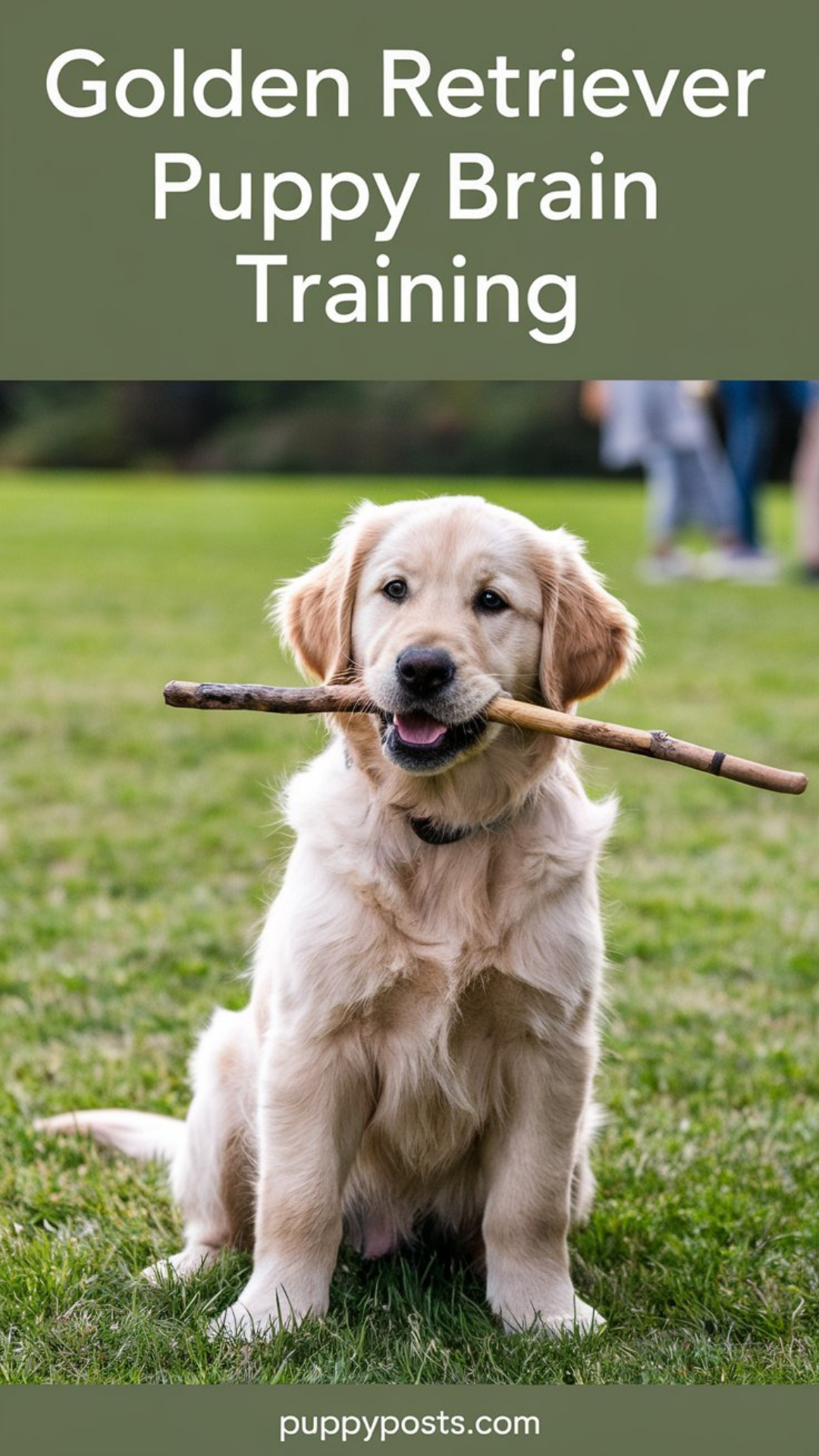Golden Retriever puppy brain training
As a veterinarian with a decade in the trenches—treating pets, managing behavior issues, and running a sanctuary for stray dogs and cats here in New Jersey—I’ve seen firsthand what happens when people overlook a puppy’s mental development. Especially with Golden Retrievers. These dogs are sweet, smart, and eager to please—but if you don’t work their brains early, you’re setting yourself up for frustration later.
Let’s cut to it. Brain training isn’t optional. It’s essential. If you want a calm, focused, and well-adjusted Golden, you need to put in the mental reps while they’re still young.

1. Why Brain Training Matters for Golden Retrievers
Golden Retrievers aren’t just adorable fluff. They’re working dogs bred for problem-solving, retrieving, and following complex commands. When you don’t challenge them mentally, they’ll find their own “games.” That’s when your socks go missing, the trash gets raided, and you wonder why they won’t listen.
Mental stimulation builds:
- Focus and impulse control
- Confidence in new environments
- Stronger bonding between you and your dog
2. Start With Basic Obedience—But Make It Engaging
Training “sit” and “stay” isn’t brain training unless you engage your puppy’s mind. You’ve got to mix it up.
- Play the “name game”: Say their name in a happy tone. When they make eye contact, reward. This builds attention and response.
- Impulse control with “leave it”: Hold a treat in one hand, let them sniff. Close your hand. When they stop pawing or sniffing, say “yes” and give a different treat from your other hand. This teaches patience and decision-making.
- Hide and seek commands: Have your pup “sit,” then hide in the next room and call them. This strengthens recall and builds search skills.
3. Use Puzzle Toys and Food Games
If you’re feeding your Golden in a plain old bowl, you’re missing a golden (no pun intended) opportunity. Food can be a training tool.
- Kong toys stuffed with frozen peanut butter, yogurt, or kibble
- Snuffle mats for scent-driven meals
- Puzzle feeders with sliding parts or treat chambers
These simple changes turn a 2-minute meal into a 15-minute problem-solving session.
4. Train in Short Bursts—But Often
Puppies don’t have long attention spans. You need to match your training to their developmental window.
- Sessions should be 5–10 minutes, 3–4 times per day
- End on a win. Don’t push past their limit or end with frustration
- Use high-value treats—but mix them up to keep your pup interested
Consistency beats intensity every time.
5. Teach Useful Tricks That Flex Their Brain
Don’t fall for the myth that tricks are just for fun. Every command is a mental puzzle.
Try these:
- Touch: Have them tap their nose to your hand. Builds focus and gives you a calm redirect in high-energy moments.
- Spin and reverse: Teach them to spin one way, then the other. It builds coordination and attention.
- “Find it”: Hide a favorite toy or treat under a cup or blanket and let them work it out.
6. Socialize Smartly—With Purpose
Every new sight, smell, and sound builds brain power. But don’t toss your puppy into chaos. That’s not socialization—it’s flooding.
- Introduce one new stimulus at a time. Vacuum, doorbell, stairs, new people, other dogs.
- Pair each experience with treats and praise. You want them to associate new things with safety and reward.
- Let them observe before engaging. Confidence comes from watching, processing, and then interacting.
7. Redirect the Zoomies Into Training
Golden Retriever puppies get the zoomies—it’s normal. But if you let them run wild every time, they won’t learn control.
Instead:
- Interrupt gently with a “sit” or “touch” command
- Reward calmness immediately after a burst of energy
- Use that energy for a brain game or tug-of-war
Don’t suppress their spirit—redirect it.
8. Be Firm, Calm, and Clear
Let’s get something straight: baby talk won’t teach discipline. Golden Retrievers are kind-hearted, but they need clarity. If your tone is inconsistent, your commands lose meaning.
- Speak once. Don’t repeat commands. Say it once, wait. Reward when they respond.
- Use a firm, calm tone—not yelling, not begging.
- Avoid letting them “win” with cuteness. That adorable face doesn’t get them off the hook.
Final Word
A well-trained Golden Retriever doesn’t happen by accident. Brain training from the start is what separates a dog that listens, learns, and thrives—from one that chews your couch and ignores every command.
So don’t wait until bad habits take hold. Start smart. Train daily. Engage their brain. You’re raising more than a pet—you’re shaping a lifelong companion.
Put in the work, and that goofy golden fluffball will grow into the dog everyone wishes they had.
Straight from a Jersey vet: Train the mind early, and the rest follows.







